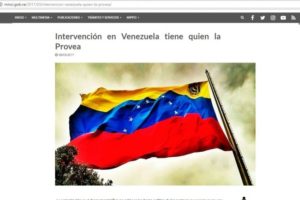 President Joe Biden and his advisors should build a framework of incentives designed to nudge a political transition in Venezuela, argues Jorge Jraissati, the president of the Venezuelan Alliance. The new administration should address the interests and weaknesses of the main domestic and international players, and reevaluate the effectiveness of the geo-economic and diplomatic tools at their disposal to secure Venezuela’s political democratization and economic liberalization, he writes for the National Interest.
President Joe Biden and his advisors should build a framework of incentives designed to nudge a political transition in Venezuela, argues Jorge Jraissati, the president of the Venezuelan Alliance. The new administration should address the interests and weaknesses of the main domestic and international players, and reevaluate the effectiveness of the geo-economic and diplomatic tools at their disposal to secure Venezuela’s political democratization and economic liberalization, he writes for the National Interest.
Recent reports suggest that the Biden administration is not interested in increasing the scope of sanctions, but in opening channels of communication with Nicolas Maduro and his regime in exchange for holding free and fair elections, Jraissati adds:
- The first problem with such an idea is that free and fair elections cannot be held in such conditions. Because as long as Maduro is in power, Venezuela will not have the conditions for a real presidential election. For instance, real elections cannot be held with a state that intimidates voters, with an electoral commission that is completely politicized, or with all politicians in exile, in jail, or afraid to speak up.
- The second problem is that the Venezuelan regime will simply not jeopardize its political power just for the removal of the American sanctions. Because if real presidential elections were held, the opposition would win by a landslide. This is the reason no sanctioned regime would take this deal, not Cuba, not Iran, not Venezuela. In fact, this option was already discussed and disregarded in a series of secret negotiations that the regime and the opposition had in 2019, with Norway being the intermediary of such negotiations.
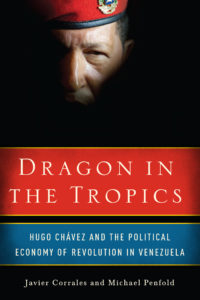 One reason for the EU’s tepid policy is Spain’s continued dominance of the EU’s foreign policy toward Latin America, argue AEI analysts Ryan Berg and Dalibor Rohac. Not only were political relations between the late Hugo Chávez and the Spanish government notoriously warm, the ties eventually took on a more nefarious nature. Within Europe, Spain is now a hotbed of Chavista money laundering and a principal port of entry for drugs trafficked through Venezuela.
One reason for the EU’s tepid policy is Spain’s continued dominance of the EU’s foreign policy toward Latin America, argue AEI analysts Ryan Berg and Dalibor Rohac. Not only were political relations between the late Hugo Chávez and the Spanish government notoriously warm, the ties eventually took on a more nefarious nature. Within Europe, Spain is now a hotbed of Chavista money laundering and a principal port of entry for drugs trafficked through Venezuela.
Far from a matter of semantics, the UK’s recognition of Juan Guaidó as interim constitutional President of Venezuela matters greatly — if nothing else, than to the physical safety of Guaidó and his team, they write for the (UK) Spectator:
As a mere ‘civil society actor’, Guaidó is in grave danger — in 2020, the cases of repression against civil society organisations increased by 157 per cent. The language also signals that the EU will only help Guaidó as it does other civil society actors in the country — which is to say not much at all. The vacillation also increases the willingness of China, Russia, Iran, Cuba, and Turkey to double down on Maduro and thwart any political transition. Recognition is key for Guaidó to access funds that have been confiscated or frozen from corrupt Maduro officials. It also serves as a basis for refusing the Maduro regime’s request to access the country’s assets around the world.
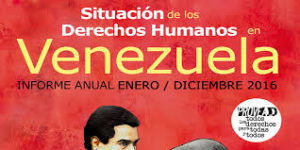 In December, Maduro held illegitimate parliamentary elections to undermine the 2015 democratically-elected National Assembly (NA), whose mandate was set to expire in January 2021. Empowered with a non-legitimate parliament, Maduro today wields control over the democratic opposition led by the Interim Government of Venezuela (IGV) through harassment, prosecution and other attempts to silence its members, say analysts Gabriela Cuevas, Gabriel Ferrufino and Ana Hernández.
In December, Maduro held illegitimate parliamentary elections to undermine the 2015 democratically-elected National Assembly (NA), whose mandate was set to expire in January 2021. Empowered with a non-legitimate parliament, Maduro today wields control over the democratic opposition led by the Interim Government of Venezuela (IGV) through harassment, prosecution and other attempts to silence its members, say analysts Gabriela Cuevas, Gabriel Ferrufino and Ana Hernández.
After the outcome of the regime’s sham elections, the opposition-led NA continues to stand as the last remaining democratic institution in Venezuela, they write for the International Republican Institute’s Democracy Speaks:
The 2015 NA has continued their operations by establishing a Delegated Commission on January 5, comprised of a condensed group of committee presidents responsible for carrying out legislative activities. In response, the regime has thwarted any success of the 2015 NA by imposing restrictions on 35 deputies and alleging false accusations of corruption and organized crime. Furthermore, Maduro has racked up 2,891 crimes against humanity and committed more than 5,094 killings – all while criminalizing international support, attacking hundreds of journalists and censoring dozens of media outlets and civil society organizations.
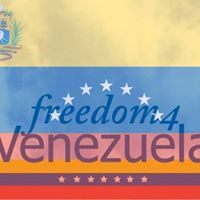 It is not yet clear how the new White House team plans to deal with the crisis, VOA reports. Press secretary Jean Psaki recently said the administration wants to promote a peaceful and democratic transition through free and fair elections, but also “prosecute individual” Venezuelans implicated in corruption and human rights violations.
It is not yet clear how the new White House team plans to deal with the crisis, VOA reports. Press secretary Jean Psaki recently said the administration wants to promote a peaceful and democratic transition through free and fair elections, but also “prosecute individual” Venezuelans implicated in corruption and human rights violations.
The incoming administration will seek to mount an international offensive to press Maduro to allow free elections, perhaps starting with municipal elections that the dictatorship is considering holding in August, the Miami Herald’s Andres Oppenheimer observes.
Council on Foreign Relations expert Elliott Abrams, the former special representative for Venezuelan affairs, who held at least one 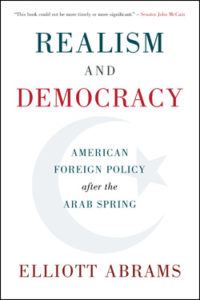 meeting in December with a group of transition team officials, believes Biden will continue the current U.S. policy of recognizing opposition leader Juan Guaidó as the leader of Venezuela’s National Assembly and the country’s interim president, he adds.
meeting in December with a group of transition team officials, believes Biden will continue the current U.S. policy of recognizing opposition leader Juan Guaidó as the leader of Venezuela’s National Assembly and the country’s interim president, he adds.
“Yes, I think so. I don’t think we will see major changes in U.S. policy. And I think that they understand that the face of the opposition, the opposition’s leader, is Juan Guaidó.” NED board member Abrams added that there is significant bipartisan support for Guaidó in Congress, including top Democrats such as Sen. Bob Menendez, D-New Jersey, who is likely to become chairman of the Senate Foreign Relations Committee.
U.S. unilateral economic sanctions don’t spark regime change; on the contrary, they typically convince autocrats that they have no option but to hold on to power, while the sanctions weaken the opposition and civil society. The more desperate that people are to survive, the more dependent they will be on the government, argue Francisco Rodríguez, founding director of the nonprofit Oil for Venezuela, and Jeffrey Sachs, University Professor at Columbia University. Biden’s approach to Venezuela policy should start from fundamentally different premises, they write for the Hill:
- First, the role of the international community should be to foster a negotiated solution in which the parties to the country’s conflict agree on peaceful democratic reforms to resolve their differences.
- Second, addressing the country’s humanitarian crisis is urgent.
- Third, a multilateral approach that engages not only our European allies but also China and Russia, Maduro’s financial backers, will deliver a stable solution for the best interests of all countries, including Venezuela and the United States.
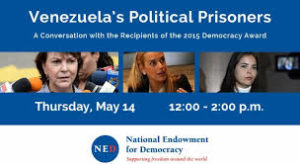
National Endowment for Democracy
Rather than negotiating, the United States should present Maduro, privately, with a series of clear trade-offs, carefully structured to induce the regime to change behavior. Specifically, Washington should move to offer diplomatic goods the regime values against specific, verifiable improvements in its human rights practices, says Venezuelan political commentator Francisco Toro.
The liberation of political prisoners should be at the top of the list of demands, alongside the dismantlement of the FAES police death squads that Maduro has used to terrorize the population, he writes for the Post. Full and unimpeded access for human rights investigators must be made the condition for specific economic cooperation measures.
Brexit Britain should take a stand on Venezuela https://t.co/t2NxiUwULO via @spectator
— Democracy Digest (@demdigest) February 10, 2021







